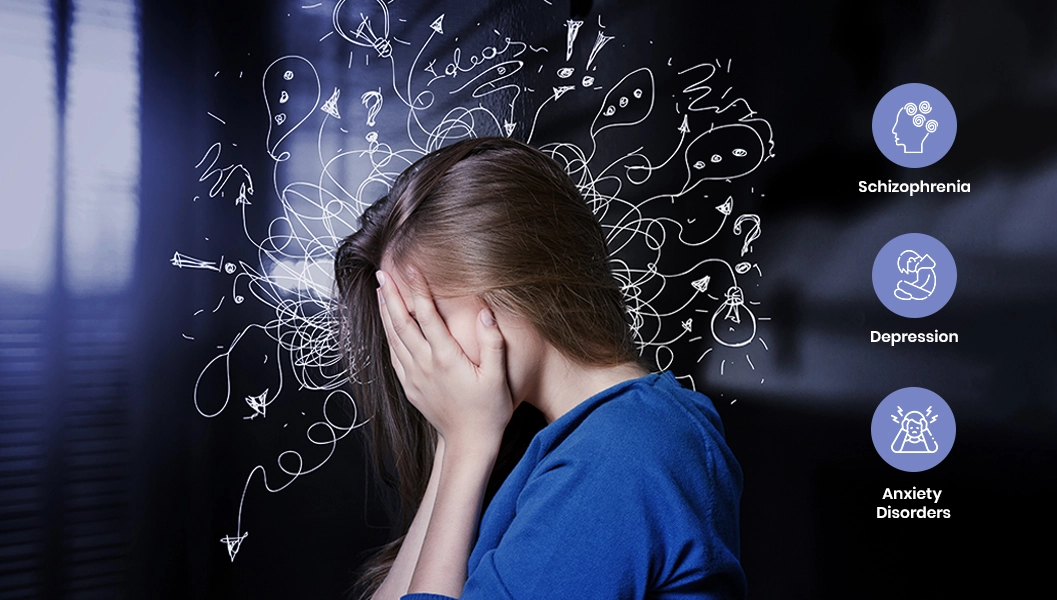What Types of Mental Health Problems Are There?

Have you ever had days when you feel heavy headed, tired and even the simplest of things are overwhelming? It is not just you. Mental health issues affect millions of individuals during their lifetime, but many remain quiet due to the belief that they are expected to manage them themselves. The fact is, knowing the types of mental health disorders is the initial step to receiving the proper assistance, and here, we are going to examine them.
Understanding the Issue
Mental health problems affect our thoughts, feelings, and behavior. Some of the most common ones are anxiety disorders, depression, bipolar disorder, post-traumatic stress disorder (PTSD), eating disorders and schizophrenia. The causes may be complicated- it can be genetics, environment, trauma and even physical health.
Sadly, there are misconceptions. Some people apparently believe they are only in your head, or can be talked out of it, but they are real medical conditions, and they can impact relationships, work, self-esteem, and even physical health.
Why We Avoid Help (Normalizing Resistance)
People are usually hindered by stigma, fear of judgment or uncertainty of whether the therapy will be effective. Some of them think that their issues are not serious enough to seek professional help. The truth? When you already feel like you can not cope, it is hard to seek help, but it is a strong sign, not a weak one.
Signs You May Benefit from Therapy
You may want to explore types of therapy for mental health if:
- You feel stuck in negative thought patterns.
- Your coping strategies no longer work.
- You’re withdrawing from friends and activities you once enjoyed.
- You’ve experienced trauma that still affects you.
- Stress or anxiety feels constant.
Therapy may be useful in offering safe and structured methods of dealing with emotions, disputing unhelpful thoughts, and acquiring better coping skills. Before you take the next step, you can examine your own signs with the help of a self-check tool or mental wellness quiz.
How Saalvio Can Help You Start
If you’re not ready for live treatment for mental health problems, Saalvio offers gentle first steps. You can try:
- Journaling prompts to express thoughts
- CBT-based thought trackers to spot patterns
- Mood and habit trackers
- Self-guided psychoeducation resources
- Guided meditation or grounding audios
These tools turn the exploration of your mental health less frightening and more potent.
When You’re Ready: The Value of Live Therapy
One-on-one psychotherapy offers:
- Personalized support tailored to your needs
- A confidential, judgment-free space
- Evidence-based treatment for mental health problems
- Skills for emotional regulation and self-awareness
You don’t need to “have it all figured out” to begin. Therapy meets you exactly where you are.
How Saalvio Supports You
Our process is simple:
- Book a free consultation
- Get matched with the right professional based on your needs
- Choose from live video sessions, flexible scheduling, and multiple languages
- Work with types of therapists for mental health, including psychologists, counsellors, and specialized practitioners
We also offer culturally sensitive and faith-based approaches when requested.
Your First Step Towards Healing
Recovery does not begin when everything is alright. It starts with a small but brave step. It might be downloading a free guide, booking a discovery call, or messaging a therapist with a question. Saalvio is there to walk with you.
If you’d like to explore mental health types, symptoms, and treatments in detail, read our experts written guide on mental health for trusted insights.
Bottom Line
You may still be unsure-and that is fine. Keep in mind that knowing how mental disorders can be treated is not a sign of weakness; it is a sign of taking back your well-being. Any action you take, even the least one, is a step forward. You are worthy of the attention, empathy and hope awaiting you.

